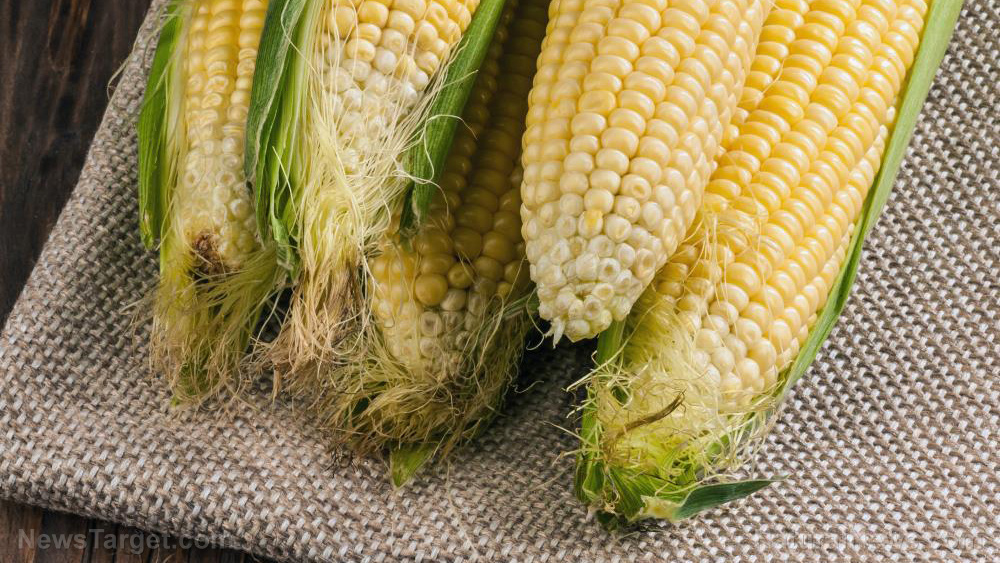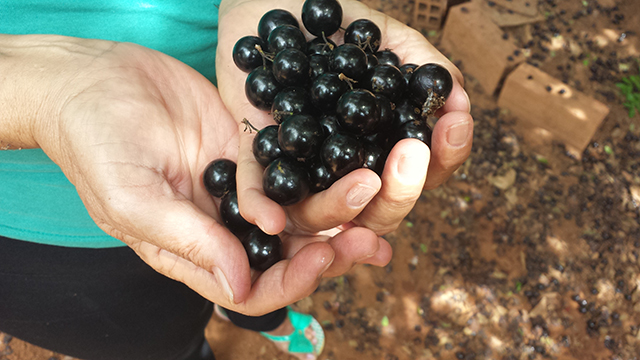Pear necessities: 8 Health benefits of eating pears
07/31/2020 / By Divina Ramirez

The humble pear may not be as popular or as extensively studied as its close “cousin” the apple, but both fruits have a lot in common in terms of their nutrition profile and reported health benefits.
In fact, Nathan O’Callaghan, a researcher at the Commonwealth Scientific and Industrial Research Organization (CSIRO), found that pears offer a surprisingly good amount of health benefits, from fighting inflammation and reducing blood sugar to treating cough and preventing hangover.
Pears have also been found to influence heart health, digestion, cancer risk and body weight in a positive way.
Top health benefits
Pears are easily distinguishable by their bell shape. Sweet and slightly crisp, they have been enjoyed as a health food since ancient times.
Pears make for a delicious and nutritious snack. A medium-sized pear contains only 101 calories, so it’d be difficult to gain a couple of pounds even if you eat a lot of this superfruit.
According to the U.S. Department of Agriculture‘s (USDA) food and nutrition database, a medium pear can provide the following:
- Protein – 0.36 grams (g)
- Fat – 0.14 g
- Fiber – 3.1 g
- Calcium – 9 milligrams (mg)
- Magnesium – 7 mg
- Phosphorus – 12 mg
- Potassium – 116 mg
- Choline – 5.1 mg
Pears also contain small amounts of other micronutrients, such as copper, niacin and folate.
Here are some science-backed health benefits associated with this superfood:
Pears contain beneficial plant compounds
The plant pigments responsible for the pale, greenish color of pears also double as antioxidants. The phenolic compounds called anthocyanins, for instance, are the pigments behind some pears’ reddish hues.
According to recent studies, the anthocyanins in pears, apples and berries are linked to a reduced risk of heart disease and other chronic conditions.
Pears also contain traces of carotenoids, another group of plant pigments that help maintain eye health and enhance immune response to infection and disease. Other important plant compounds in pears include lutein and zeaxanthin.
Pears support gut health
Pears contain both soluble and insoluble fiber. Insoluble fiber is essential for optimal gut health as it helps soften and bulk up stools, promoting bowel regularity. Insoluble fiber is also responsible for protecting the gut from indigestion, constipation, bloating and other digestive issues.
Meanwhile, soluble fiber feeds the beneficial bacteria in the gut that promote digestion and protect the intestines from pathogens.
Pears help combat oxidative stress
Pears have antioxidant properties, thanks to their vitamin C content. Vitamin C helps neutralize harmful molecules called free radicals that can cause oxidative damage to cells. Studies have linked this type of cell injury to inflammation and the onset of various chronic diseases.
Besides vitamin C, other antioxidant compounds in pears like anthocyanins and carotenoids also help fight oxidative stress and inflammation.
Pears help reduce cancer risk
Findings from animal and test-tube studies indicate that pears are promising holistic treatments for cancer.
Anthocyanins, for instance, have been found to exhibit anti-carcinogenic activities against cancers of the breast, colon and prostate.
Pears help prevent diabetes
Prediabetics and diabetics need not be concerned about the natural sugar content of pears. Studies show that pears do not raise blood sugar levels, even if consumed in large quantities. This effect can also be attributed to the fruit’s anthocyanin content.
In addition, the soluble fiber in pears helps inhibit the absorption of excess glucose in the gut.
Pears support heart health
Keri Glassman, a registered dietitian and the founder of The Nutritious Life Studio, says that certain phytonutrients in pears, like the antioxidant glutathione, can help protect against high blood pressure and stroke.
Phenolic compounds like quercetin, rutin, arbutin, catechin and chlorogenic acid also support and enhance blood circulation, thus promoting optimal heart health. (Related: Quercetin is one of the most potent natural antioxidants on the planet.)
Pears can boost metabolism
Recent research on apples and pears have found that both fruits can increase a person’s metabolic rate and promote the faster burning of calories. In the long run, this can keep a person from becoming obese and experiencing the health complications related to it.
Pears also act as an appetite suppressant, says registered dietitian and nutritionist Karen Ansel. The fibers in pears, in particular, help keep the gut occupied for long periods, thus sustaining that feeling of fullness long after a meal.
Pears complement other foods
Pears are an ideal food for the holidays, being in season from September through spring. But pears also make for a great fall snack or as an ingredient in fall recipes.
Besides eating them as-is, some people also like to toss pear slices into their oatmeal. Others blend them to make a nutritious fruit smoothie.
Pears can also be cut and then roasted in the oven for a caramelized dessert, or chopped and added to vegetable broths and pumpkin soup.
Pears confer numerous benefits for human health. Eat them as part of a balanced diet to maximize their nutritional benefits.
Read more articles about the health benefits of pears and other superfoods at Superfoods.news.
Sources include:
Tagged Under: anti-diabetes, antioxidants, digestion, food cures, food is medicine, functional food, heart health, natural medicine, nutrients, organics, Pears, phytonutrients, prevent diabetes
RECENT NEWS & ARTICLES
COPYRIGHT © 2017 PREVENTDIABETES.NEWS
All content posted on this site is protected under Free Speech. PreventDiabetes.news is not responsible for content written by contributing authors. The information on this site is provided for educational and entertainment purposes only. It is not intended as a substitute for professional advice of any kind. PreventDiabetes.news assumes no responsibility for the use or misuse of this material. All trademarks, registered trademarks and service marks mentioned on this site are the property of their respective owners.




















